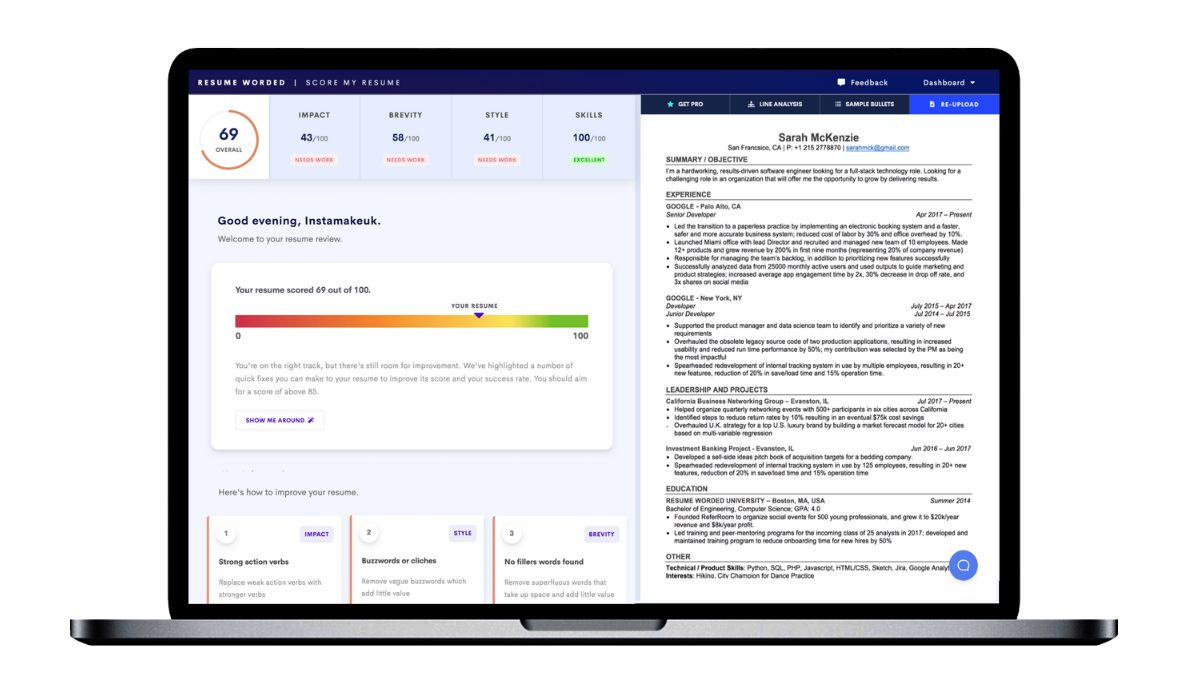If you’re feeling overwhelmed by your busy schedule and struggling to keep up with everything, it’s time to prioritize your work life balance. Whether you’re working from home or commuting to the office, it’s essential to set boundaries and carve out time for the things that matter most in your personal life. By making a conscious effort to prioritize self-care, hobbies, and quality time with loved ones, you can improve your overall well-being and achieve greater satisfaction in both your professional and personal pursuits. In this article, we’ll explore some practical strategies for maintaining a healthy work-life balance and achieving greater harmony in all areas of your life.
The Importance of Work-Life Balance

You want to excel professionally, but you don’t want to sacrifice your personal life in order to do so. Sound familiar? It’s a struggle that many of us face in our daily lives, and one that is well worth tackling.
Having a work-life balance or work-life integration isn’t just about avoiding burnout or feeling overwhelmed. It’s also about being able to recognize the importance of both professional and personal goals, as well as how they affect each other. After all, making sure that you’re not only working hard, but also taking care of yourself is essential for growth—both professionally and personally.
When you make sure that you’re giving both sides of your life the attention they deserve, you’re able to reach your potential in both arenas. So no matter where you are on the work-life balance journey, know that it doesn’t have to be an overwhelming process—it can be an opportunity for self-discovery and growth.
Pros & Cons of Increasing Your Work Hours

With the abundance of distractions and responsibilities, it can be difficult to find balance between your career and personal life. If you’re struggling with maintaining a healthy work-life balance, you may end up considering increasing your work hours in order to get more done.
This approach does have its merits: if you spend more hours within the office or your workspace, then you have a higher chance of achieving success quickly and efficiently. You’ll also have access to more resources which may help jumpstart projects or tasks.
On the other hand, there are also drawbacks to this approach. Prolonged working hours can feel overwhelming and lead to burnout, fatigue, and mental health issues. It also puts unnecessary strain on relationships with loved ones as too much time spent on work means less time for family or self-care activities.
Ultimately, whether or not you choose to extend your working day comes down to personal preference and what’s right for you in terms of workload and lifestyle balance. However, it is important that you keep in mind the pros and cons of increasing your work hours so that you can make an informed decision that works best for both your career and personal life.
Flexibility in the Workplace: Tips for Employers and Employees

When it comes to work-life balance, employers and employees can benefit from the flexibility of schedules and working from remote locations. It’s a two-way street that provides advantages for both the employer and the employee.
For employers, offering flexibility can help with:
- Attraction & retention of talented professionals
- Improved workplace morale
- Increased productivity & performance
- Reduced overhead costs associated with location requirements
For employees, flexibility in the workplace can provide:
- Increased job satisfaction
- Improved mental health & well-being
- Enhanced work-life balance
- More time to focus on personal goals and passions
When it comes to implementing a flexible working environment, it’s important for employers to have parameters in place that ensure expectations are set and maintained at both ends. Communication is key to ensure a successful work-life balance plan that is beneficial for everyone.
Creative Ways to Achieve Work-Life Balance: Prioritize, Schedule & Delegate

It’s essential to prioritize your goals and manage your schedule. This means that you need to take an honest look at what’s important to you in terms of both professional and personal growth, and set aside time for each. Setting aside specific days and times for work tasks allows you to enjoy the rest of the day worry and stress free.
Prioritize
Order your tasks from most to least important and be sure not to let anything slip through the cracks.
Schedule
Set reasonable deadlines for each task, taking into account how long it will take for a particular project or goal. Make sure that each task is manageable, but don’t be too lenient with yourself either—overcommitting will only add to your stress levels!
Delegate
Delegating tasks not only frees up your time, but it generates more productive results from those involved in the project. Working smarter—not harder—really is key here. Ask yourself: Are there any areas where I could benefit from help or support? Can someone else handle part of this project while I focus on other tasks?
Give Yourself Plenty of Breaks
It’s important to make sure you’re taking regular breaks throughout the day, both to recharge and to avoid burnout. This can be anything from a morning walk or lunch break to a longer vacation to get away from the daily grind. Taking time away from stressful activities allows you to reset and come back with a fresh perspective.
Take Advantage of Technology

In today’s world, flexible working is more attainable than ever. Technology has allowed employers and employees to connect from anywhere in the world. This means that if you’re able to telecommute, it’s easier than ever to stay productive and connected with your team. Not only does it save time (and money) on commuting, but it helps reduce the need for the additional stressors associated with it.
Don’t Be Afraid to Ask for What You Need

It’s important to remember that no one is perfect and that you don’t have to juggle all of these things on your own. If you need help or advice, don’t be afraid to ask. There are likely other employees within your organization that have gone through similar situations and can provide valuable insights. Similarly, there are always external resources available if you don’t feel comfortable discussing your situation with colleagues or employers.
In the end, achieving a healthy work-life balance takes practice. You may not get it right the first few times, but don’t give up. Keep
Connecting With Loved Ones & Managing Stress

One of the best ways to manage your stress and keep a healthy balance between your professional and personal life is to stay connected with our loved ones. Connecting with the people who matter most can be a great way to take a break from work, de-stress and reset. Spending quality time with them can help put things into perspective, as you’re reminded of the relationships you’re working hard for.
Beyond that, connecting with friends and family also helps us stay in touch with our humanity, allowing us to reflect on who we are as people rather than just what we do for a living. Acknowledging this may help us to identify growth opportunities at work, so that our career progresses more successfully.
Moreover, knowing when it’s time to step back from our job is key too. When you feel overwhelmed or overworked, taking some time away from work can lead to renewed stamina and motivation when you return—which can help boost performance! That said, striking a good balance between work and life doesn’t have to be a challenge if we remember why we’re doing all this in the first place—to make sure not just our career but also our personal lives can flourish together.
Finding the Balance: How to Incorporate Personal Goals & Profession Goals

Making sure you stay on top of both your personal and professional goals can be challenging, but it’s possible. Here are a few tips that can help:
1. Know Your Priorities
The first step to finding balance is to know your priorities. Ask yourself, “What goals are important to me?” When you’re aware of what matters to you, it’s easier to take action and commit yourself to achieve those goals.
2. Manage Your Time Wisely
Time management is key when it comes to making the most out of your day. Learning how to make the best use of your time will help ensure that you are able to achieve both personal and professional goals. Make sure to plan out your week with achievable tasks and mark off each task as you complete them.
3. Set Clear Boundaries
It is essential to set clear boundaries between your personal and professional life. Having dedicated time for both can help to ensure you remain productive and efficient. Additionally, it’s important to make sure to give yourself quality time off to relax and reset. This could be in the form of a staycation, some leisurely activities, or a few days off work to spend with your family.
4. Find a Support System
Having a supportive circle of friends, family, and co-workers can be a great asset. They can provide advice and encouragement when times get tough, and help motivate you to keep working towards your goals. Having someone to talk to can help remind us that we are not alone on our journey.
By taking the time to connect with our loved ones, be aware of our limits, and build a supportive network, we can create a healthy balance between our work and life. This, in turn, can open up opportunities for us to learn and grow—both personally and professionally.
5. Take Breaks & Recharge
Don’t forget to take breaks! This will help keep you motivated and focused on achieving your ultimate goal—finding balance between your personal and professional life. Taking a break every few hours will help recharge, allowing more room for creativity and productivity in the long run.
Conclusion
All in all, when it comes to achieving a balance between professional and personal life, it’s vital to start by setting realistic yet ambitious goals and priorities for yourself. As you create your own balance, don’t forget to find moments to pause and celebrate your successes.
Remember: balance is an ongoing process that requires dedication, commitment, and flexibility. It is only by maintaining these elements that you will be able to reap the rewards of a healthy work-life balance, allowing you to work to your fullest potential while also taking care of yourself.








